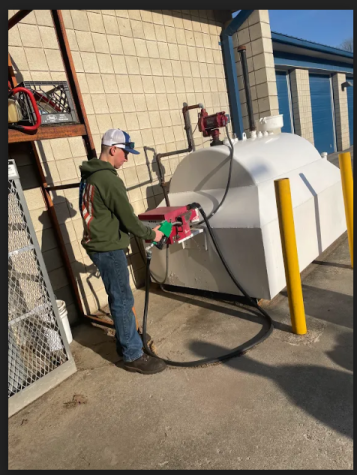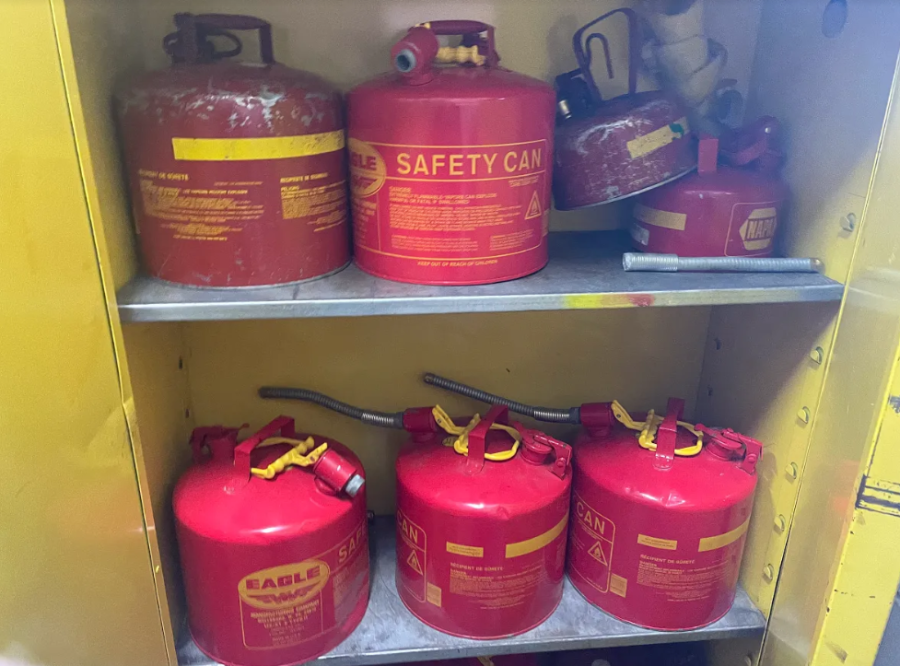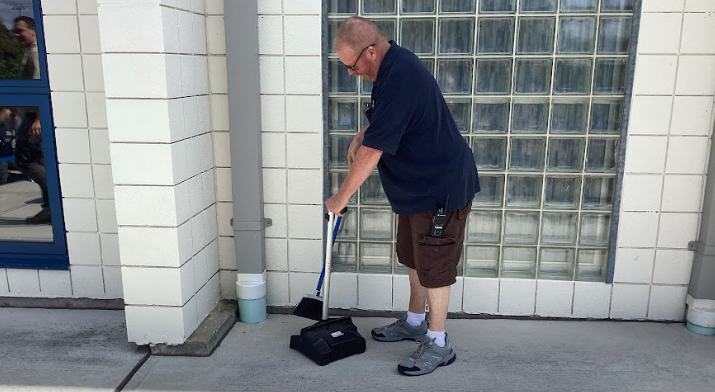Fuel Prices Impact Learning as Agriscience Grapples with Costs
Nonnewaug’s fuel and gas storage room is a vital part of many Agriscience courses.
May 6, 2022
WOODBURY — As many people know fuel and gas prices are on the rise and don’t seem to be slowing down anytime soon until U.S. strategic oil reserves enter the supply chain, and with such high prices, this affects many students, people who drive to work, truckers, and others who drive in general.

The Chief Advocate talked to a few faculty members here at Nonnewaug to see their views on such high prices.
“It’s frightening,” said Jen Jedd, an agriscience faculty member.
Many students work jobs to afford fuel for their vehicle, yet the hardworking paychecks they earn are being reserved for fuel, especially diesel fuel. Even though these prices may be painful for student drivers, these prices fail to compare to prices of the mid-2000s, when the state average fuel price was $4.67 per gallon and minimum wage was only $7.40, according to the Connecticut Department of Labor.
Many people and students wonder what the two big tanks are on the side of the agriscience building. Those are fuel tanks. These tanks hold about 500 gallons; the one with the green handle and a pinkish color liquid is diesel fuel. The diesel the school uses is for the tractors that the agricultural students drive. In this tank is off-road diesel, which is non-taxed fuel used for off-road vehicles such as tractors
In the other tank with a red handle is gasoline, which is used for all the gas vehicles here at Nonnewaug such as lawn mowers and string trimmers. This is used by the students in the agriscience program, such as landscaping run by Tom DiMarco.
“It’s scary, you know?” DiMarco added. “We need it for a lot of things, and with prices this high, it stinks.”
This year, just in the agriscience department, the 2021-22 budget allows the agriscience classes to spend up to $6,900 on diesel and gas and $34,500 on fuel, oil and natural gas used to heat the building.



















